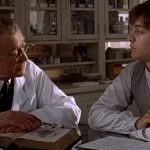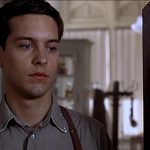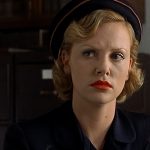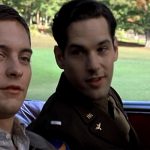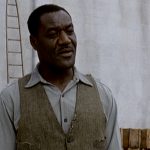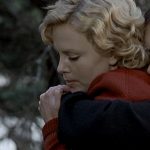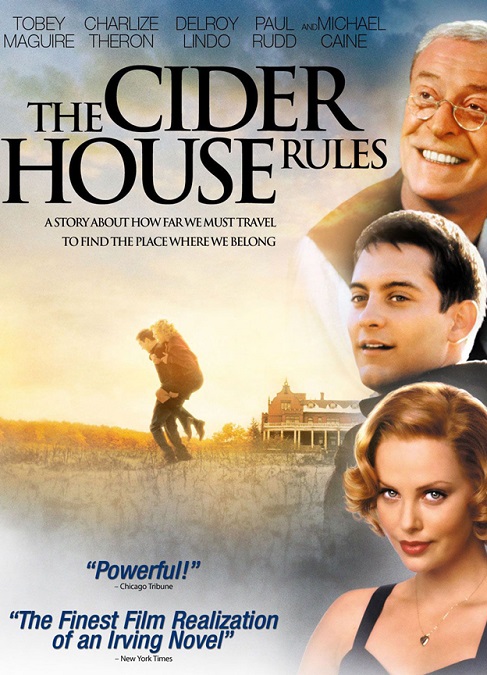
The Cider House Rules – 1999
OK, it is time to scale back a bit and tell a much more intimate story than those of the previous year. The Cider House Rules is the story of a young orphan named Homer Wells, played by Tobey Maguire. He is one of the children who is never adopted, and so grows into a young man in an orphanage in Maine. The head administrator at the institution is a kindly man named Dr. Wilbur Larch, excellently played by Michael Caine.
The movie is largely about the relationship that exists between the two men, both the highs and the lows. But it is more than that. It is also a coming-of-age film for the character of Homer. Dr. Larch is more than just the man who runs the orphanage. He is a medical doctor with a number of highly questionable ethics. The biggest of these is the fact that he performs illegal abortions. As homer grows into adulthood, Dr. Larch takes him under his wing and teaches him how to be an obstetrician and pediatric physician, capable of delivering babies and caring for sick children.
But it seems to be a role that Homer doesn’t want. He is mature enough to understand that he has never been to medical school, and when Dr. Larch tries to get him to perform an abortion, he refuses, saying that not only is the procedure illegal and morally questionable, but that he is also not professionally qualified. When it comes down to it, Homer is dismayed at the fact that he has never been away from the orphanage, and wants to see more of the world. He knows that if he gives in to Dr. Larch and takes over as the administrator, he will never leave the orphanage.
So when an opportunity comes for Homer to leave, he takes it, thus driving a wedge between him and Dr. Larch. A young couple comes to the orphanage for an abortion. Charlize Theron and Paul Rudd play Candy Kendall and Lieutenant Wally Worthington. After the operation is complete, Homer asks them to take him with them when they go. They agree, and the three leave together. Homer is a sweet, good-natured kid who becomes friends with his traveling companions. Wally gets him a job on his mother’s apple farm, picking apples with a group of African American and Latino migrant workers. The building in which they reside is called the Cider House.
The movie did a good job of developing Homer’s character. It showed where he was born and raised, how he learned love and kindness from Dr. Larch, and how he was a hard worker with a solid moral center and a strong code of ethics. But he was not perfect. When Wally was called back into service in WWII, Homer starts an affair with Candy. Maguire did a great job, creating a sweet and likeable character that didn’t make me roll my eyes because of forced innocence or ridiculous naiveté.
I also really liked Dr. Larch, even though his work ethic was, at times pretty messed up. He did some really bad things that a credible doctor should never do. He falsified Homer’s medical records to keep him out of the war. He performed illegal abortions. He falsified documents to make it appear as though Homer had been to college and lied to the orphanage’s board of directors, claiming that he had never met Homer, a new perspective physician. He also had a habit of medicating himself with ether to put himself to sleep, an addiction that ended up killing him.
The movie dealt with a number of these moral and ethical issues. As unethical as Dr. Larch’s actions were, they seemed to be motivated by love and genuine care for the children in his charge, especially Homer. He loved Homer like a son and wanted, as many fathers do, to pass the boy his legacy. It is why he was so hurt when Homer left. And the film made me stop and think. How wrong was it for him to do what he could to keep Homer happy, safe, and sheltered? I think his intentions were always good, though his methods were unfortunate.
In the end, Homer is forced to deal with a situation in which fellow apple pickers, Arthur Rose and his daughter Rose Rose, played by Delroy Lindo and Erykah Badu, force him to use his skills as a physician who can perform abortions. Arthur, who habitually rapes his daughter, gets her pregnant. Homer decides that an abortion would be a kindness, though after it is done, Rose murders her father to get away from him. On top of that, it becomes known that Wally has been paralyzed from the waist down in the war, and is returning home. Homer’s relationship with Candy crumbles to dust. Again, he shows remarkable maturity and steps aside, not because he doesn’t love her, but because of his friendship with Wally.
The movie is somewhat emotional, though I wouldn’t call it a tear-jerker. I was happy to see Homer return to the orphanage, ready to take up his mentor’s shingle. It was a good and unique story, based on the original book by John Irving. Lasse Hallström’s direction and the pacing were good, as was the score by Rachel Portman. It was ultimately a good movie, if a little ambiguous about its own moral position. Just don’t expect too much intensity in the drama.
